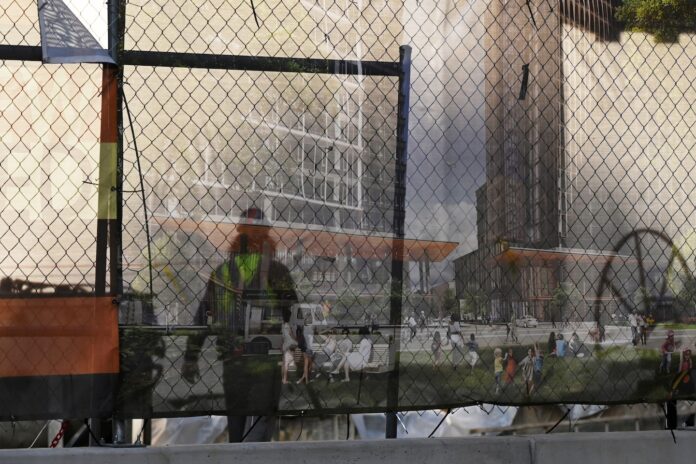It was supposed to be an urban paradise, with bustling sidewalks full of happy pedestrians and cycling enthusiasts, and a boost in tax revenue for local businesses. But Grace Park, who owns a dry-cleaning business in the area, is skeptical. “I don’t think it’s going to get much busier than this,” she says. “Why build more offices if people aren’t going to come?” Maybe Jeff Bezos should have consulted Park before Amazon’s planned Northern Virginia campus was announced back in 2018.
Amazon’s plans for the Northern Virginia campus have been thrown into disarray by the pandemic, with white-collar workers lounging at home in their pajamas and the tech giant laying off tens of thousands of employees. Critics now claim that subsidies for the project are rewarding Amazon for building something that is already obsolete. It’s like offering someone a free hand-cranked music player when streaming services are available.
The company insists that the economic benefits will come gradually, and employees will be required to show up at least three days a week beginning next month. Amazon is moving ahead with construction of a new graduate school campus and a host of transit projects, and local boosters say that the benefits and progress already made are propelling the area into the most exciting transformation story in the D.C. region. They might want to look outside and see the empty sidewalks first.
For business owners like Park, the construction delays are a sign of economic trouble. Her dry-cleaning business has been waiting for the promised foot traffic and transformed neighborhood, but it seems to have been relegated to the realm of pipe dreams. It’s like ordering a pizza with all the toppings, and getting one with only cheese instead.
While Virginia officials are expecting to pay Amazon hundreds of millions of dollars on the condition that the tech giant occupy new office space and increase tax revenue from hotel stays, the pandemic has thrown the entire deal off. The term “active use” of office space remains undefined, so officials are left wondering if it involves employees desperately trying to look busy while watching YouTube videos.
Meanwhile, Amazon’s plans for the PenPlace development are still in progress. However, the impending payouts make little economic sense given Amazon’s hybrid work policy, with fewer flights out of the area, fewer restaurant meals, and less activity for Arlington’s retail sector. It’s like buying a new bicycle, but not having legs to pedal it.
Across the street from Amazon’s Helix site, the pandemic passion project Tacos Cinco de Mayo has proved popular with construction workers and nearby apartment dwellers. However, business is inconsistent from day to day, reflecting the haphazard approach of the whole Northern Virginia campus project.
The future of the neighborhood remains uncertain, and there is no clear plan in place to deal with the realities of hybrid and remote work. Instead of pinning their economic hopes to one company, officials should look for a long-term strategy that can stand up to the uncertainties of the modern digital age. Otherwise, when the sidewalk remains empty, the only thing left is to shrug and order another pizza.
Serious News: washingtonpost

